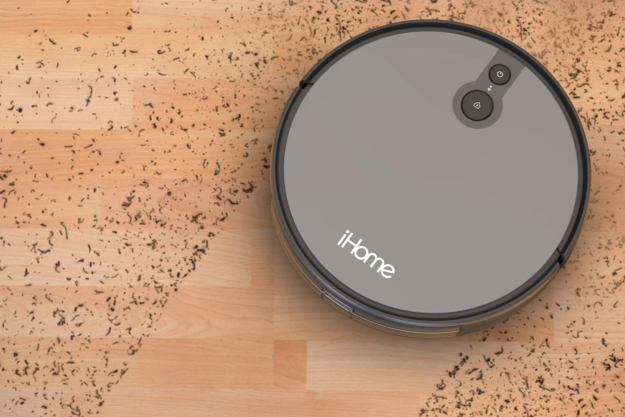 Human resource professionals have the difficult job of weeding out hundreds of applicants for a single position. They use any means available to whittle the candidate pool down to the dozen or so applicants that are worth interviewing. And because social media is such an integral part of our lives, HR managers naturally turn to Twitter, Facebook, LinkedIn, and Google to find out more about you. Don’t get me wrong, your resume and cover letters are the first line of defense, but to find out if you fit into a company’s culture, HR will absolutely judge you by your social media presence. So what exactly are they looking for? We picked the brains of some HR professionals to find out how they use social media to filter through candidates, along with some tips to help keep your social media accounts potential employer-friendly.
Human resource professionals have the difficult job of weeding out hundreds of applicants for a single position. They use any means available to whittle the candidate pool down to the dozen or so applicants that are worth interviewing. And because social media is such an integral part of our lives, HR managers naturally turn to Twitter, Facebook, LinkedIn, and Google to find out more about you. Don’t get me wrong, your resume and cover letters are the first line of defense, but to find out if you fit into a company’s culture, HR will absolutely judge you by your social media presence. So what exactly are they looking for? We picked the brains of some HR professionals to find out how they use social media to filter through candidates, along with some tips to help keep your social media accounts potential employer-friendly.
LinkedIn and Facebook are a recruiter’s best friend

A cloud storage firm human resource manager, who requested to be unnamed, uses both LinkedIn and Facebook to find out a candidate’s personal and business connections. However she says that holding personal Facebook posts against a candidate is against company policy.
Tumblr’s Director of Recruiting, Sean McDermott, relies less on Facebook, but instead uses LinkedIn, Twitter, and of course Tumblr.
Quick Tip: Make sure the information on your resume matches up with your LinkedIn resume. Having contradictory information isn’t going to help.
Don’t hide your social networking self

Knowing this you might be inclined to hide your social media presence from the prying eyes of HR managers by turning on your privacy settings. While AVG senior evangelist Tony Anscombe doesn’t recommend you to make your profile public, you might not want to make everything completely private.
“I recommend that candidates just be themselves and have open profiles,” says McDermott. “We want to get the best match for our culture, so there’s no point in hiding anything.” Culture fit seemed to be the motivating reason for delving into candidate’s Facebook profiles, as Newman echoes the idea.
“Viewing the person as a whole is integral to making the right fit. I always tell candidates that a new opportunity isn’t just about salary, skills, location or any of the other factors. It’s about all of them! A candidate is the same. It isn’t just about a resume, it’s about the person.” In fact he adds that he’s more likely to disqualify you if you do not have a social media presence.
Get filter friendly
However it becomes a problem when applicants aren’t aware enough about what they publish online. AVG’s study found that the chances of securing an interview should the HR professional find an inebriated photo of the applicant plummets by 84 percent. And it should come as no surprise that 90 percent of the time, nude photos will disqualify a candidate. It isn’t only on your account that recruiters could see this content; photos like these can also be found by HR managers by if they look through your friends’ profiles. So don’t get too comfortable with your privacy settings, because your social circle could hurt your hiring potential as well.
Of course, HR hiring practices vary on a case-by-case basis. McDermott deals with programmers and startup minded candidates, so he recommends Tumblr applicants to “open your profiles and pictures… Unless you have pictures of yourself clubbing baby seals. Then make them private and apply for jobs in finance.” Everyone’s got boundaries — the lesson being that if you are going to do something scandalous, don’t photograph or let your friends photograph it. And if they do, ask them to remove it. Soon.

What are the chances that candidates have open accounts?
Newman says that (based on a rough estimate) 85 percent of candidates he’s looked at leave their social network profiles public. Take Facebook out of the equation, and that rate shoots up to nearly 100 percent.
The cloud storage HR manager estimated that 30 percent of Facebook accounts are public, while 80 percent of LinkedIn profiles are public.
The types of candidates that tend to apply to Tumblr are typically “putting themselves out there and having viewable profiles because that’s what we are – a platform emphasizing expression and individuality.” So McDermott has found that more than 90 percent of candidates had open profiles.
Come out, come out wherever you are…
So you’re paranoid about a recruiter scoping out your profile and totally set your Facebook to private. So you’re unfindable, right?
Unfortunately, not quite. Anscombe of AVG warns that if a HR rep really wanted to find out more about you there are a couple of clever strategies.

This is an extreme example, considering how time consuming the strategy is, but it’s an example of ways that HR professionals can “search around” your privacy settings if need be.
Use Google to your advantage

This strategy is not only a smart way to protect yourself from having embarrassing results surface, but you can “game” Google to surface your achievements or hobbies. For example you can publish articles about you to Scribd, or comment on your soccer league’s Meetup group – both show up in Google results.
Play it safe
At the end of the day, have a social media presence but play it safe. If you’re applying to a suit-and-tie job, you might want to scrub some of your risque posts. If you’re applying to Tumblr, you can (to a degree) let your personality shine. In summary, Newman says: “My personal view in terms of Social Media is never post anything I wouldn’t want my Mom to see. If you don’t follow that rule, then I suggest you scrub your online presence.”


